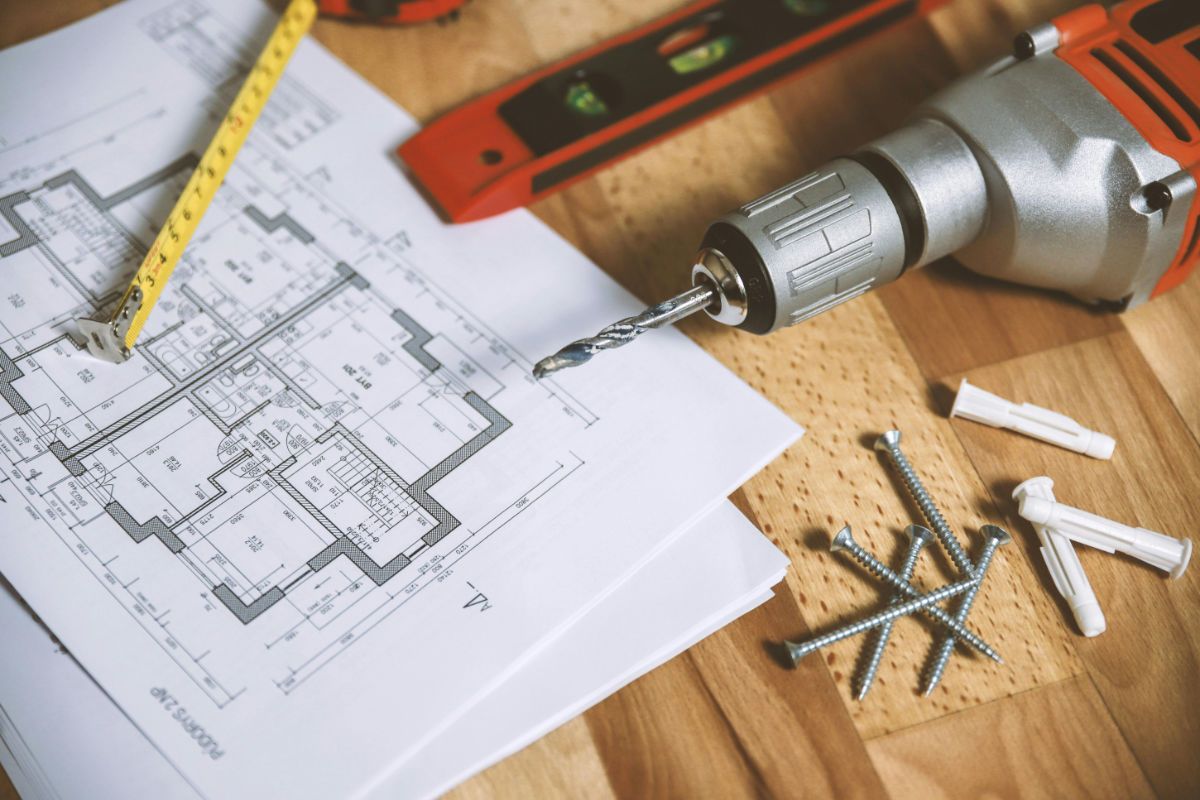Red Flags to Watch for When Hiring a Property Management Company
Choosing the right property management company can make or break your real estate investment. While a great company can save you time, money, and stress, the wrong one might leave you dealing with endless headaches and costly mistakes. That’s why it’s crucial to know what warning signs to look for during the hiring process.
You might come across companies that seem perfect on paper but fail to deliver when it counts. From poor communication to hidden fees, these red flags can quickly turn into major issues. By recognizing these signs early, you’ll protect your property and ensure a smoother management experience.
Importance Of Choosing The Right Property Management Company
Selecting the right property management company determines the success and profitability of your real estate investment. An experienced and reliable company ensures efficient tenant management, consistent rent collection, and timely property maintenance. These factors directly impact your property’s value and income.
Poor management compromises tenant retention, delays repairs, and leads to financial losses. Companies with inadequate processes or staff may fail to address tenant concerns, decreasing tenant satisfaction and increasing vacancy rates. This negatively affects your long-term returns.
A professional property management company provides accurate financial reporting, transparent communication, and compliance with local regulations. For example, understanding landlord-tenant laws minimizes legal risks. The right company focuses on safeguarding your investment while simplifying property ownership.
Lack Of Clear Communication
Clear communication is essential when hiring a property management company. Ineffective communication can lead to misunderstandings, delayed solutions, and jeopardized property operations.
Unresponsive Customer Service
Unresponsive customer service signals poor property management practices. Prompt responses are necessary for resolving tenant concerns and addressing property issues. If you experience delayed replies or a lack of follow-up during the initial inquiry phase, consider it a red flag. For instance, if emails remain unanswered for days or calls are consistently ignored, it’s a sign the company might not prioritize communication.
Vague Terms In Contracts
Vague contract terms create ambiguity about a company’s responsibilities. Detailed agreements ensure transparent accountability for lease enforcement, repairs, and financial management. Avoid companies that skirt specifics about their duties or fail to outline fee structures clearly. For example, unclear clauses about maintenance costs or tenant screening processes may result in unexpected expenses or poor service. Always review contracts thoroughly to confirm clear obligations.
Excessive Fees Or Hidden Charges
Evaluating fee structures is essential when hiring a property management company. Hidden charges or excessive fees can strain your budget and reduce profitability.
Unexplained Fee Structures
Request a detailed breakdown of all fees before signing any agreement. Companies may list vague terms like “miscellaneous fees” without explanation. For example, fees for tenant placement or maintenance should be itemized, not lumped into undefined categories. Specificity in pricing reduces the risk of surprise charges.
Lack Of Transparency In Financial Handling
Clear financial reporting is crucial for effective property management. Beware of companies that provide inconsistent or delayed reports. Transparent companies deliver thorough breakdowns of income and expenses, including rent collection, maintenance costs, and management fees. Missing documentation or refusal to share financial details can indicate mismanagement or dishonesty. Always insist on access to regular, itemized financial statements.
Poor Reputation Or Negative Reviews
A property management company’s reputation directly reflects its professionalism and reliability. Ignoring negative feedback or failing to research their reputation can result in subpar services.
Lack Of References Or Testimonials
References and testimonials provide insight into a company’s track record. If a property management company cannot provide several credible references or verified testimonials, this may indicate poor service quality or inexperience. Reliable companies often share written or video testimonials from satisfied property owners and tenants. Always request at least three references, and follow up with them to verify their experiences. Absence of such evidence should raise concerns.
Low Ratings On Review Platforms
Review platforms often highlight recurring issues. Consistently low ratings (e.g., below 3 stars) or a pattern of similar complaints, such as missed maintenance or poor communication, suggest deeper management problems. When evaluating reviews, look for specific details regarding responsiveness, fee transparency, and lease enforcement, rather than isolated negative comments. Pay attention to how the company responds to feedback, as dismissive or unprofessional replies can reveal their approach to conflict resolution.
Inadequate Industry Experience
A property management company with insufficient experience can lead to poor operational decisions and financial losses. Assess their expertise to safeguard your property investments.
Limited Knowledge Of Local Market
Local market knowledge directly impacts your property’s success. If a company lacks understanding of regional rental trends, tenant preferences, or local regulations, it can result in lower occupancy rates and compliance violations. For example, in cities with seasonal demand fluctuations, poorly informed companies might fail to capitalize on peak rental periods. Ensure the company demonstrates expertise in rental pricing, tenant demographics, and local ordinances to boost property profitability and maintain legal compliance.
Minimal Track Record Of Successful Management
A short or inconsistent history of property management raises concerns about reliability. Companies unable to provide evidence of successfully managed properties may lack operational efficiency or competency. Ask for case studies or references from clients with similar properties. Red flags include frequent client turnovers or unresolved tenant disputes, which suggest ineffectiveness in lease enforcement, rent collection, or conflict resolution. Choosing a company with proven experience ensures competent handling of your property’s complexities.
Unlicensed Or Uninsured Companies
Hiring an unlicensed or uninsured property management company exposes your investment to significant legal and financial risks. Ensuring proper licensing and adequate insurance coverage is essential for protecting your property and maintaining smooth operations.
Absence Of Necessary Certifications
A valid license indicates compliance with local laws and professional standards. Property management companies are often required to hold state-specific licenses, real estate brokerage licenses, or property management certifications, such as those from the National Association of Residential Property Managers (NARPM). If a company operates without proper credentials, it may lack the skills or authority to handle leases, tenant disputes, or financial transactions legally. Always verify a company’s licensing status with relevant regulatory bodies before signing contracts.
No Liability Insurance Coverage
Liability insurance protects your property and finances from unforeseen incidents. Without it, you could face costs tied to accidents, tenant injuries, or property damage caused by negligence. Reputable companies carry general liability insurance, errors and omissions (E&O) coverage, and, in some cases, specific policies for employee-related liabilities. Request proof of insurance and confirm that coverage amounts align with industry standards to avoid potential responsibility for costly legal or repair expenses.
High Tenant Turnover Rates
High tenant turnover rates can indicate underlying issues with property management. Retaining tenants is crucial for maintaining consistent income and reducing operational costs.
Incomplete Tenant Screening Processes
Incomplete tenant screening processes contribute to higher turnover rates. Effective screening evaluates creditworthiness, rental history, and employment status to ensure reliable tenants. If a property management company skips these steps or fails to verify applicants thoroughly, tenants may default on rent or leave unexpectedly. Asking for details about their screening procedures helps gauge their ability to find long-term tenants.
Poor Conflict Resolution Practices
Poor conflict resolution practices cause tenant dissatisfaction and lead to frequent move-outs. Resolving disputes about maintenance requests, noise complaints, or lease violations effectively ensures tenant comfort. Companies that neglect tenant concerns or handle disputes unprofessionally often experience higher vacancy rates. Inquiring about how they mediate tenant issues or examining feedback from current tenants reveals their approach to conflict management.
About Advantage Property Management
At Advantage Property Management, we combine professional expertise with local market knowledge to help property owners maximize their rental investments—without the stress. With over a decade of experience managing single-family homes and multi-unit properties, we offer full-service solutions that cover every stage of the rental lifecycle—from leasing and maintenance to renovations and tenant support.
We proudly serve a wide range of communities across Tennessee, including Memphis, Arlington, and surrounding areas. In Mississippi, our services extend to Southaven, with continued support in nearby cities across DeSoto County and beyond. Whether you’re a local landlord or an out-of-state investor, our team is equipped to handle your portfolio with precision and care.
Our services go beyond traditional management. We specialize in property renovations to enhance value and market appeal, and we provide experienced support for Section 8 rental properties in Memphis and surrounding areas. From tenant screening and rent collection to compliance and long-term tenant retention, we’re committed to excellence at every touchpoint.
When you choose Advantage, you’re partnering with a licensed, insured, and locally trusted property management company that values transparency, integrity, and performance.
Key Takeaways
- Avoid property management companies with poor communication, as it can lead to delays, misunderstandings, and mismanagement of your property.
- Be cautious of vague contract terms or hidden fees. Clear agreements and transparent financial reporting are critical to maintaining trust and avoiding unexpected expenses.
- Always check a company’s reputation through reviews, testimonials, and references. Negative feedback or low ratings can signal deeper issues with their services.
- Ensure the company has adequate industry experience and local market knowledge to make informed decisions about your property.
- Verify that the company is licensed, insured, and qualified to operate legally and protect your investment from potential risks.
- High tenant turnover rates may indicate poor tenant screening or conflict resolution practices, which can hurt your property’s profitability and stability.
Conclusion
Choosing the right property management company is one of the most important decisions you’ll make as a property owner. By staying vigilant for red flags like poor communication, hidden fees, or a lack of transparency, you can avoid costly mistakes and ensure your investment is in capable hands. Thorough research, clear agreements, and attention to a company’s reputation and expertise will help you find a partner that aligns with your goals. A professional, trustworthy property management company can simplify ownership and maximize your property’s success.
Looking for a property management company you can count on?
Contact us for property management services. We’re here to help you protect your investment and make ownership stress-free.
Don’t forget to check our available listings to see the quality properties we manage across Tennessee and Mississippi.
Frequently Asked Questions
What is the role of a property management company in real estate investments?
A property management company handles tasks like tenant management, rent collection, property maintenance, and financial reporting. Their role is to ensure the property operates efficiently, maximizes profitability, and complies with local regulations, allowing property owners to save time and reduce stress.
How can choosing the wrong property management company affect investments?
Hiring the wrong company can lead to high tenant turnover, poor property maintenance, delayed rent collection, and hidden fees. These problems can decrease tenant satisfaction, increase costs, and reduce the overall profitability of your investment.
What red flags should I look for when hiring a property management company?
Watch for poor communication, lack of transparency in fees, unresponsive customer service, vague contract terms, and inconsistent financial reporting. These issues often indicate potential mismanagement or hidden problems.
Why is clear communication essential in property management?
Clear communication ensures all parties—property owners, tenants, and managers—understand their responsibilities, which helps avoid misunderstandings, delays in maintenance or payments, and tenant dissatisfaction.
How can hidden fees impact real estate profits?
Hidden fees, like vague “miscellaneous charges,” can strain your budget and reduce profitability. Always request a detailed breakdown of fees before signing a management agreement to ensure transparency.
Why is a property management company’s reputation important?
A company’s reputation reflects its service quality and professionalism. Negative reviews or low ratings often indicate poor responsiveness, ineffective management, or lack of transparency. Research reviews and testimonials to make an informed decision.
How does a lack of experience in property management affect investments?
Inexperienced property managers may make poor decisions regarding tenant management, rental pricing, or regulatory compliance, leading to financial losses and legal risks. Look for a company with a proven track record and industry expertise.
Why is it important to hire licensed and insured property management companies?
Licenses ensure compliance with local laws and professional standards, while insurance protects owners from potential liabilities, such as property damage or accidents. Confirm the company’s licensing and insurance coverage before hiring.
What does high tenant turnover indicate about property management?
High turnover rates often signal issues like poor tenant screening, unresolved disputes, or inadequate property maintenance. These problems increase vacancy rates and lower income, making tenant retention critical for profitability.
How can I verify a property management company’s competence?
Request references, review case studies, or seek testimonials from past clients and tenants. Evaluate their track record, success with similar properties, and reputation in the industry to ensure reliable and efficient management.



